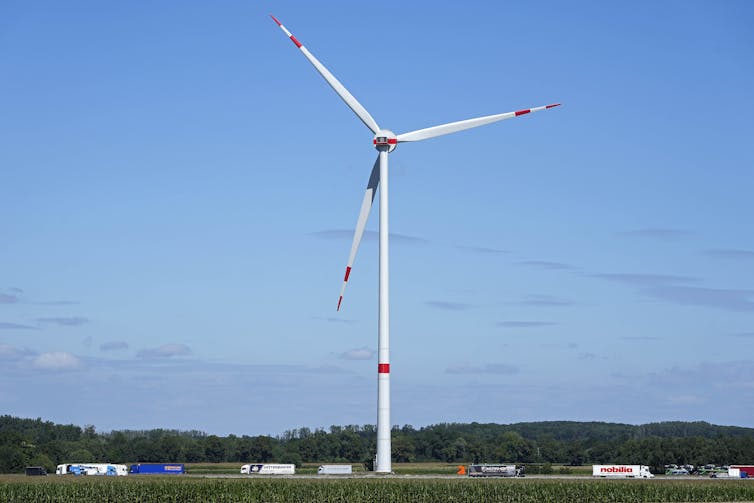New study: Emotions may matter more than facts in support for renewable energy
Published: June 20, 2024 9.33pm BST
It seems like energy policies are constantly making headlines these days.
Should Canada “axe the tax?” Is it time to end the tax breaks to Canadian fossil fuel companies and invest in renewable energy? Are electric vehicles a good investment? Should governments put the brakes on solar panels and wind turbines?
These are big questions that matter for the economy, the environment and our futures. In answering these questions, people will likely consider the costs and benefits of each approach.
Yet, people are not robots. People have thoughts, feelings and emotions. And they especially have strong feelings about climate change and energy sources.
In our recent study published in Energy Policy, we brought together four psychologists, two sociologists and a lawyer to explore the role of emotions in making these decisions. We found that people’s concerns or worries about climate change shape how they view energy sources.
In short, worries and concerns about climate change can spark enthusiasm for hydro, solar and wind and spur opposition to coal, oil and gas. These results have important implications for shaping our collective and individual decisions about energy sources.
Emotions matter
One possible factor that may shape personal decision-making regarding energy sources is what researchers call “climate concern” and “climate worry.” These refer to whether an individual is concerned or worried about climate change and its potential impacts on themselves, those close to them and the world around them.
These emotions play an important role in shaping how the public perceives and acts on a wide range of issues related to climate change. For example, climate concerns and worries can motivate people to take personal climate action and support a range of progressive climate policies. But what about energy preferences?
Our study conducted a meta-analysis that synthesized data from 36 countries and more than 85,000 participants to examine how worries or concerns about climate change can affect how people express support for particular energy sources.

We found that people who are more concerned or worried about climate change are more supportive of hydroelectricity, solar and wind energy. This makes sense because these energy sources produce vastly less greenhouse gas emissions than others.
Perhaps surprisingly, we did not find equally strong opposition to fossil fuels among people who are concerned or worried about climate change. We also found that factors of political ideology, gender and education had only limited impact upon support either way.
The bottom line, however, is that people who were worried or concerned about climate change were far more supportive of renewables than they were opposed to fossil fuels.
The emotional side of policy
These results provide a new way to look at the ongoing energy debate.
Even those among us who are most concerned about climate change want energy policy to add rather than subtract existing energy sources. Likewise, we found that most will more readily support an “energy addition” strategy as opposed to an “energy transition.”
As a result, climate-related emotions can serve as a lever to promote renewable energies, either in terms of government policy or purchasing decisions.
On the other hand, emotional appeals may be less effective in building opposition to oil, gas and coal. This may be due to people’s preference for the status quo or concerns about the costs of a transition away from fossil fuels.
Let us be clear, though. This is not a hopeless message. Instead, we think it should serve as a motivation for climate organizers, energy policy entities and anyone involved in shaping our climate and energy futures. Policy reports, media articles and climate scholarship tend to emphasize what we must give up in preventing a future conditioned by climate catastrophe.
Read more: Why the Trans Mountain Pipeline expansion is a bad deal for Canadians — and the world
But, as our results show, we also need work on building a more positive vision for the low-carbon future. The energy transition does not just mean giving up your gas stove or flying less. It also means breathing cleaner air, better public transportation, lower energy costs and making access to energy just and equitable.
These are the positive and optimistic parts of a low carbon future that we must do a better job communicating if we want to build support not just for more renewables, but for less fossil fuels.

